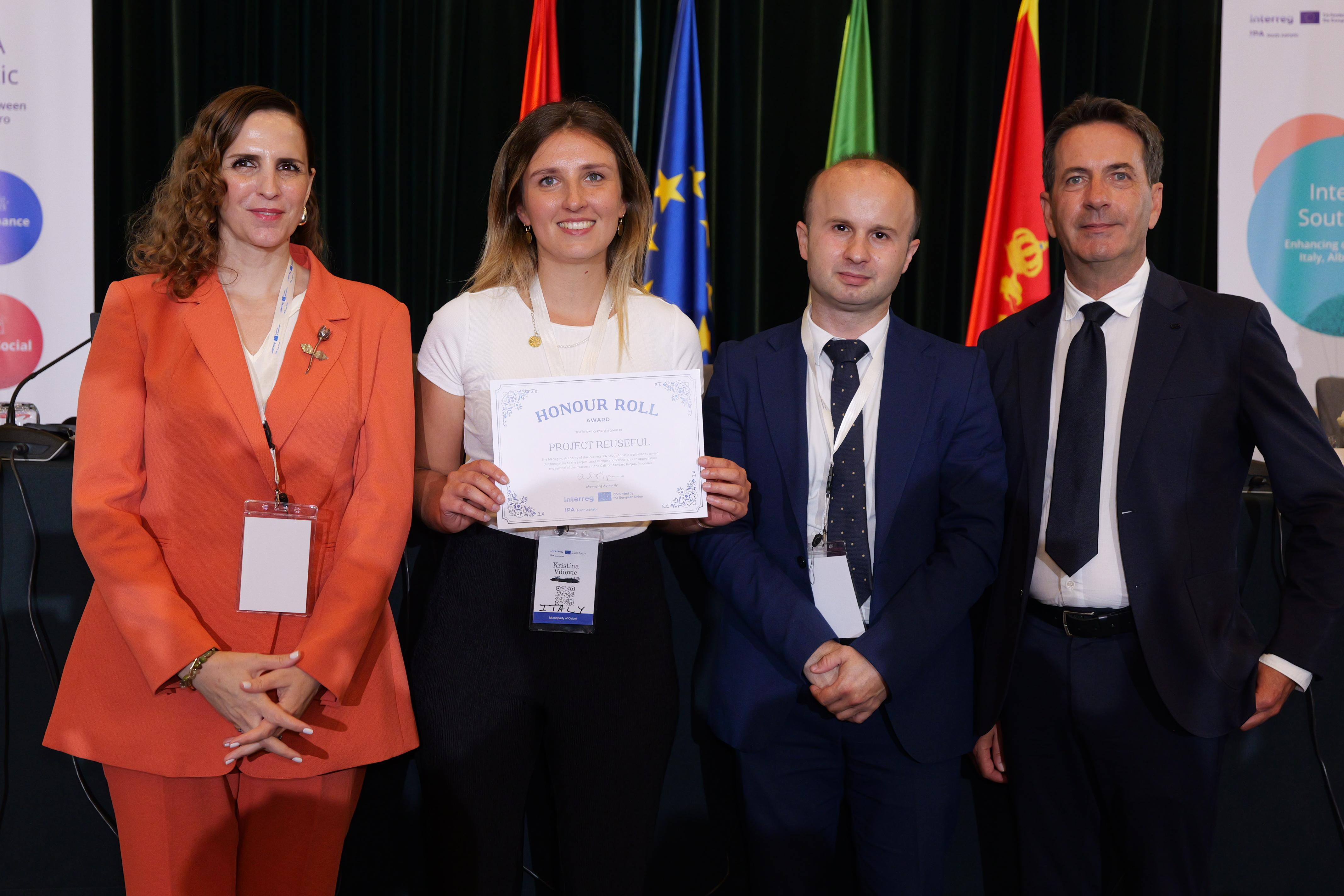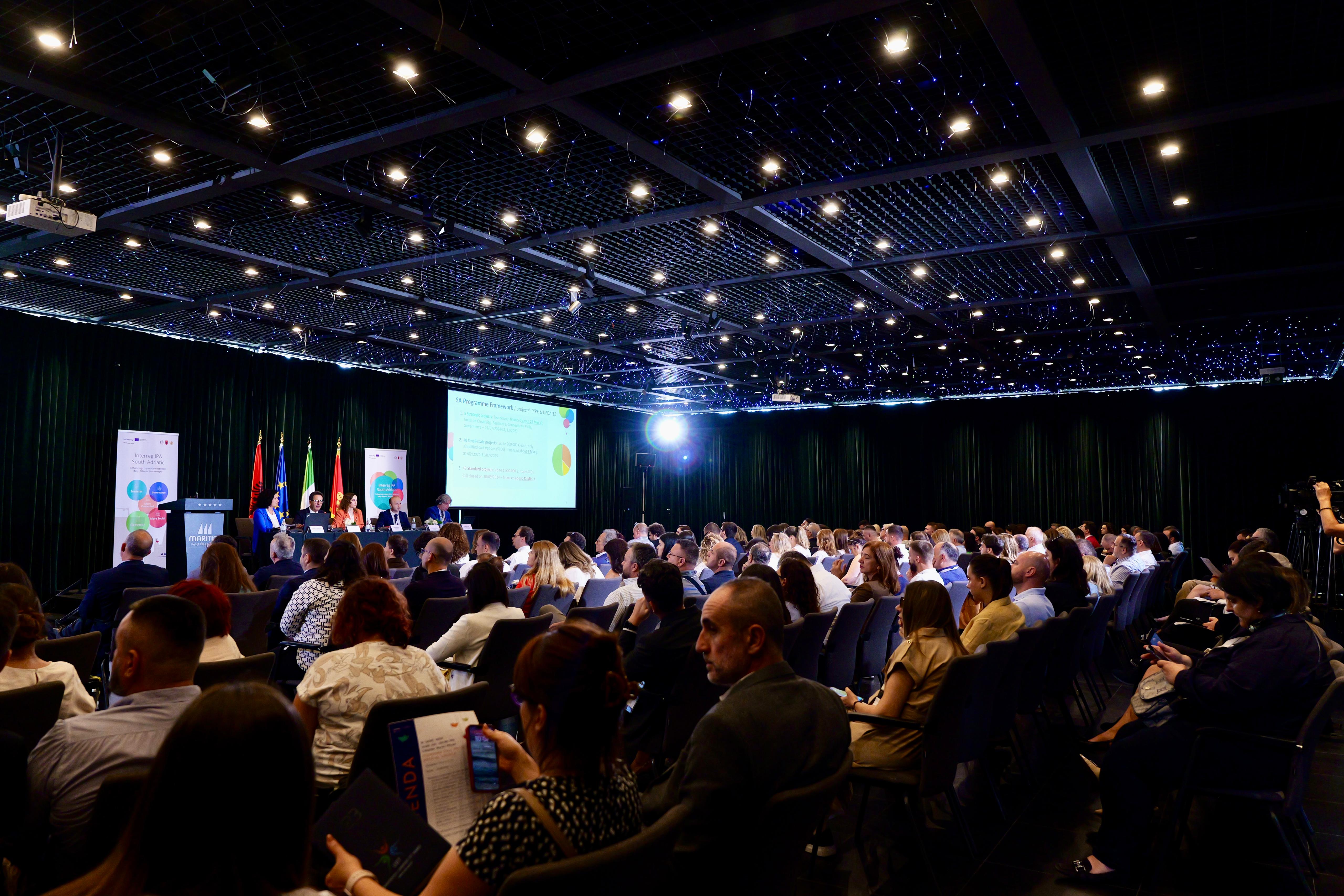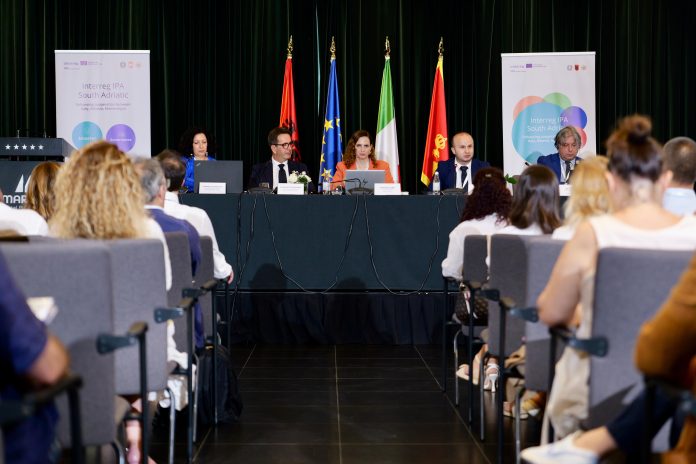A total of 49 institutions and organizations from Montenegro will implement projects in cooperation with partners from Italy and Albania under the Interreg IPA South Adriatic Programme, with over 11 million euros in non-refundable EU funds allocated for their participation.
Today, a signing ceremony was held in Tirana with lead project partners, attended by representatives from Italy, Albania, and Montenegro, the Managing Authority, the Joint Secretariat, as well as the European Commission.
Out of 198 submitted project proposals, 43 have been approved for funding, with a total project value of around 41 million euros. A total of 220 partners are participating in the implementation, including universities, research centers, educational institutions, chambers of commerce, and regional and local authorities.
The projects cover four strategic areas: competitiveness and innovation, sustainable development and the environment, mobility and transport, and social inclusion.
“We are proud that 49 Montenegrin institutions and organizations will take part in these cross-border projects, and I am confident they will make a full contribution to our shared vision of a more connected and prosperous South Adriatic region,” said Miloš Marković, Director General of the Directorate for European Territorial Cooperation at the Ministry of European Affairs of Montenegro.
“Through joint work, we can strengthen our ties and effectively address shared social, economic, and environmental challenges. We expect that the newly approved projects, along with ongoing strategic and smaller-scale projects, will bring tangible benefits that will improve the quality of life across the South Adriatic,” Marković added.

Klaudio Polignano, head of the programme’s Managing Authority – the Puglia Region, stated that the selected projects are based on the core principles of territorial development: innovative solutions, practical application, and long-term sustainability.
“The programme is already funding 5 strategic projects with a total value of over 31 million euros, as well as 40 smaller-scale projects for which 8 million euros have been collectively allocated,” said Polignano.
Eridana Cano, Director of the National Agency for Strategic Programming and Coordination of Support of the Republic of Albania (SASPAC), emphasized that the participation of Albanian beneficiaries in the projects reflects Albania’s growing role in the region and its commitment to inclusive development, innovation, and sustainability.
“An investment of 13 million euros is not just a sign of the European Union’s support for our country, but also proof of its continued commitment to reforms and improving the quality of life for all citizens of Albania,” said Cano.
Gilles Kittel from the Directorate-General for Regional and Urban Policy of the European Commission (DG REGIO) stressed the importance of these projects for strengthening the administrative capacities of Albania and Montenegro on their path toward EU membership.
“Through tangible cooperation with an EU member state, these projects serve as a kind of pre-accession academy, enabling partners to build new management skills on a daily basis. In addition to building technical capacities, the projects provide a practical space to apply and improve communication strategies, so that real benefits for citizens and businesses become more visible,” said Kittel.

Interreg IPA South Adriatic 2021–2027 is a cross-border cooperation programme co-financed by the European Union through the Instrument for Pre-Accession Assistance (IPA III), with a total budget of over 81 million euros. It builds significantly on the results of the previous Interreg IPA CBC Italy–Albania–Montenegro 2014–2020 programme.
The programme area in Italy includes the regions of Puglia and Molise, while Albania and Montenegro participate with their entire territories. The goal of the programme is a smarter, greener, more connected and inclusive South Adriatic, with better governance and strengthened regional cooperation through joint projects of institutional and non-profit actors at national and regional levels.


